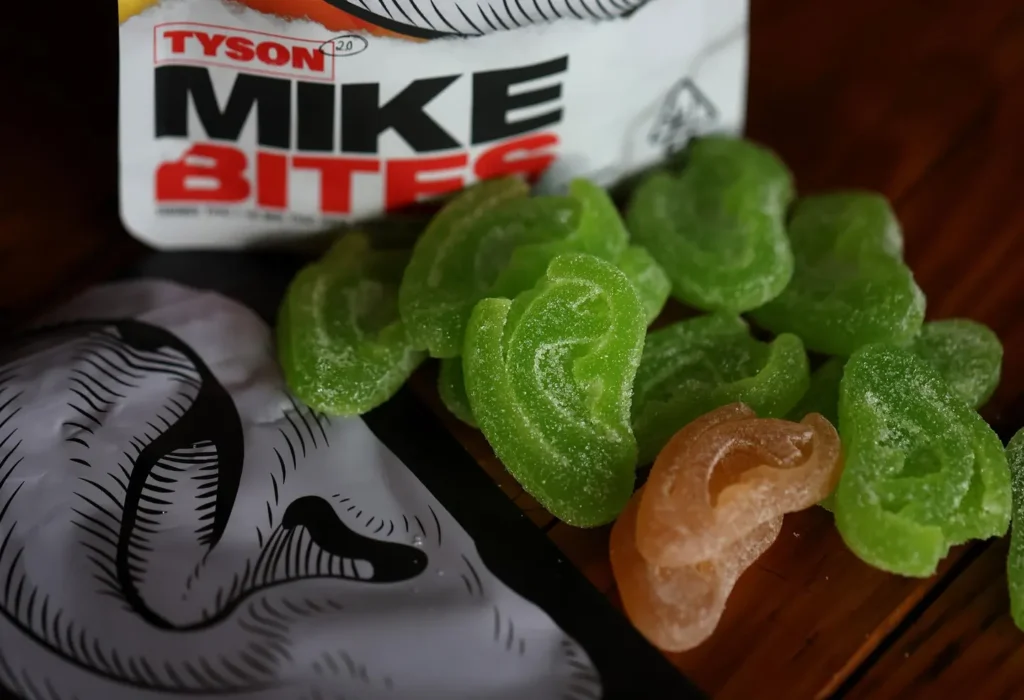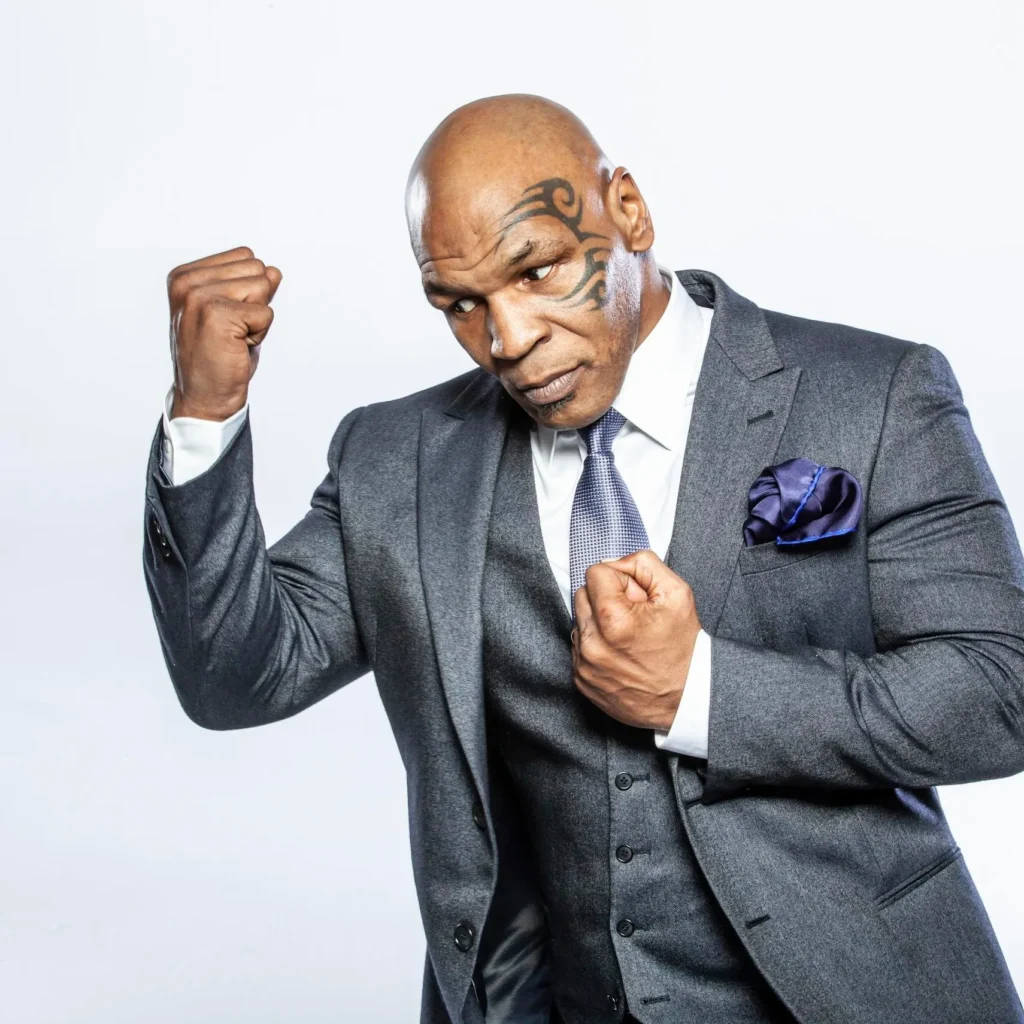Apr 26, 2024,06:00am EDT
When Mike Tyson, the former undisputed heavyweight champion of the world, strolled through Times Square on April 20, chaos ensued. A taxi screeched to a halt, the driver clasping his hands together in reverence, exclaiming, “I love you, Mike! God bless!”
A swarm of tourists caught sight of the 57-year-old boxer and pursued him like a frenzy of wild-eyed fish. Even busy New Yorkers paused in their tracks, shouting, “It’s Iron Mike, y’all!” As Tyson retreated behind a metal fence on Seventh Avenue and 43rd Street, a mother tossed her toddler over, hoping for a blessing from the ex-champ.
But Tyson—the once-dubbed “baddest man on the planet”—wasn’t in New York to spar. Instead, the Brownsville native was there to celebrate 420, the cannabis high holiday, and promote the expansion of his cannabis brand, Tyson 2.0, in his hometown, along with a new collaboration with marijuana seed bank Royal Queen Seeds.
“The sky is the limit,” says Tyson, a co-founder and chief brand officer of the Las Vegas-based weed brand. “I was the champ of the world, and now I’m the champ in cannabis. We’re going to conquer the world. We want to be in every country on the planet.”
While Iron Mike was known for his self-promotion in the ring, his claims about his burgeoning cannabis company hold water. Tyson 2.0 sells marijuana products—such as flower, vapes, and edibles shaped like Evander Holyfield’s ear, infamously bitten during a 1997 match—in 20 states across the U.S., as well as in Amsterdam, Barcelona, and Thailand. The company, in partnership with PHCANN International in Macedonia, is set to launch in Germany’s newly legalized adult-use market and the U.K.’s highly regulated medical marijuana industry.
Tyson 2.0 operates on a licensing model, striking deals with franchisees who cultivate, produce, and market his branded cannabis goods. In 2023, Forbes estimates the brand generated $150 million in revenue, with cannabis sales accounting for about 30%, and the rest from accessories, CBD, nicotine vaporizers, and other products.
The brand’s flower bears names inspired by Tyson’s boxing career, like Dynamite Cookies (after his nickname Kid Dynamite) and Knockout OG (reflecting Tyson’s 44 KO victories out of 50 fights). However, the flagship product, Mike Bites—an edible resembling Holyfield’s half-bitten ear—was conceived by Tyson’s wife, Kiki.
“My wife is eccentric, but she’s brilliant,” Tyson remarks. Initially skeptical, he eventually saw the potential in her idea. Despite its controversial nature, Mike Bites has proven successful in the competitive $28 billion legal cannabis market, making Tyson 2.0 the industry’s top-selling celebrity brand, according to cannabis data firm Headset.
“Isn’t it ironic?” Tyson muses. “When I bit Holyfield’s ear, they fined me $3 million. But I’ve made more money from pictures of biting ears than I lost. Only me and Holyfield are still profiting from a fight 30 years ago.”

Hear, Hear: "When I bit Holyfield’s ear, they took $3 million from me,” Tyson says. “I made more than that taking pictures of biting other people’s ears."JUSTIN SULLIVAN/GETTY IMAGES
Established in 2021, Tyson 2.0 is a subsidiary of Carma Holdco Inc., headquartered in Las Vegas, co-founded by Tyson and private equity and cannabis entrepreneur Adam Wilks. Tyson holds a significant stake in the company, which also owns Ric Flair Drip—a cannabis brand affiliated with wrestling legend Ric Flair—and EVOL, a weed line associated with Grammy-winning hip-hop artist Future.
Weed has been intertwined with Tyson’s life since his upbringing in Brownsville, where his mother worked as a sex worker. His first encounter with marijuana occurred in childhood, offered by his mother’s friend during a moment of distress—an experience that left a lasting impression.
Despite a tumultuous upbringing marked by crime and trouble, Tyson’s life took a turn when he crossed paths with legendary trainer Cus D’Amato at a reform school in upstate New York. Under D’Amato’s guidance, Tyson became the youngest boxer to clinch the heavyweight championship at the age of 20, amassing an impressive record of 37 consecutive victories, most by knockout. However, his career faced a significant setback in 1996 when he was convicted of rape, a charge he vehemently denies.
In 2009, Tyson suffered the tragic loss of his four-year-old daughter and battled with cocaine addiction, tarnishing his public image from boxing hero to controversial figure.
Despite his turbulent past, Jason Wild, president and chief investment officer at cannabis hedge fund JW Asset Management, recognized the authenticity in Tyson’s story, leading to his investment in Tyson 2.0. Unlike many celebrity cannabis brands that falter, Tyson’s candidness and openness about his struggles resonated with consumers.
Reflecting on his journey, Tyson expresses humility at his transformation from a troubled youth in Brownsville to a co-founder of one of the most successful celebrity cannabis brands. He questions the cosmic significance of his role in the cannabis and psychedelics industry, considering himself an unlikely ambassador for these substances.
Tyson, at the age of 58, is preparing to return to the ring for an unsanctioned exhibition match against 27-year-old YouTube influencer-turned-boxer Jake Paul. Despite his opponent’s age advantage, Tyson is training rigorously, abstaining from his usual indulgences and focusing on discipline. While he refrains from smoking pot during training, Tyson still explores the realm of psychedelics, drawing inspiration and insights from his experiences with substances like DMT derived from the Sonoran Desert toad.
With a renewed sense of purpose and determination, Tyson sees himself as destined to conquer the world, embracing the challenges and sacrifices required to fulfill his calling.

